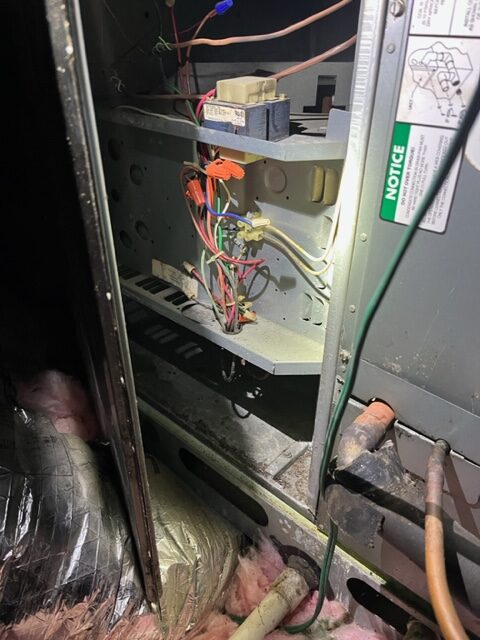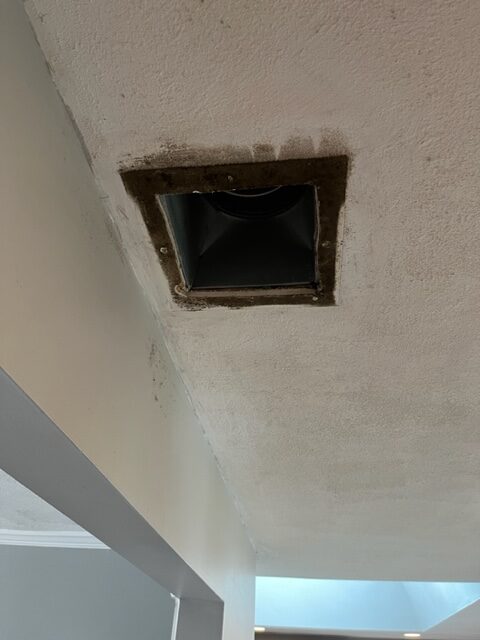Mold In HVAC Units
Mold in HVAC units can pose serious health risks and cause a variety of problems. HVAC (Heating, Ventilation, and Air Conditioning) systems are designed to circulate air throughout buildings, and mold can grow in any part of the system where moisture is present. This includes air ducts, coils, and drip pans. In this article, we will discuss the causes of mold in HVAC units, the dangers of mold exposure, and how to prevent and remove mold from your HVAC system.
Causes of Mold in HVAC Units

Mold requires moisture, food, and oxygen to grow, and HVAC systems can provide an ideal environment for mold to thrive. Some of the common causes of mold growth in HVAC systems include:
- High Humidity: If the humidity levels in your building are too high, moisture can accumulate in the HVAC system, providing the perfect environment for mold growth.
- Poor Ventilation: HVAC systems require adequate ventilation to ensure proper airflow and reduce the chances of moisture buildup.
- Condensation: If the coils in your HVAC system are not functioning correctly, they can create condensation, which can lead to mold growth.
- Leaky Ducts: Leaky ducts can allow moisture to enter the HVAC system, which can lead to mold growth.
Dangers of Mold Exposure
Mold exposure can cause a range of health problems, especially for people with respiratory issues, allergies, or weakened immune systems. Some of the health risks associated with mold exposure include:
- Allergic Reactions: Mold can trigger allergic reactions such as coughing, sneezing, runny nose, and skin irritation.
- Respiratory Issues: Mold exposure can cause respiratory problems such as asthma, bronchitis, and pneumonia.
- Headaches: Exposure to mold can also cause headaches, dizziness, and fatigue.
- Infections: In rare cases, mold exposure can lead to serious infections, especially for people with weakened immune systems.
Preventing and Removing Mold from HVAC Units

Preventing mold growth in HVAC units is essential to protect the health of building occupants and maintain the longevity of the HVAC system. Some of the measures you can take to prevent mold growth include:
- Maintain Humidity Levels: Keep humidity levels below 55% to prevent moisture buildup and reduce the chances of mold growth.
- Proper Ventilation: Ensure that your HVAC system has proper ventilation to ensure proper airflow and reduce the chances of moisture buildup.
- Regular Maintenance: Schedule regular maintenance of your HVAC system to ensure that it is functioning correctly and to identify and address any potential issues before they become a problem.
- Clean Air Filters: Change the air filters in your HVAC system regularly to ensure that they are not clogged with dirt and debris, which can promote mold growth.
If you suspect that your HVAC system has mold, it is essential to address the problem promptly to prevent further mold growth and protect the health of building occupants. Some of the steps to take include:
- Identify the Source: Identify the source of the mold growth, whether it’s a leaky duct, clogged air filter, or malfunctioning coil.
- Turn off the HVAC System: Turn off the HVAC system to prevent the mold spores from spreading throughout the building.
- Remove the Mold: Use a solution of vinegar and water to remove the mold from the affected areas. Be sure to wear protective gear, such as gloves and a mask, to prevent exposure to mold spores.
- Schedule Professional Cleaning: Consider hiring a professional cleaning company that specializes in mold removal to ensure that all traces of mold are removed from the HVAC system.
If you believe your HVAC system has been compromised with mold, give us a call to discuss to schedule an inspection.
